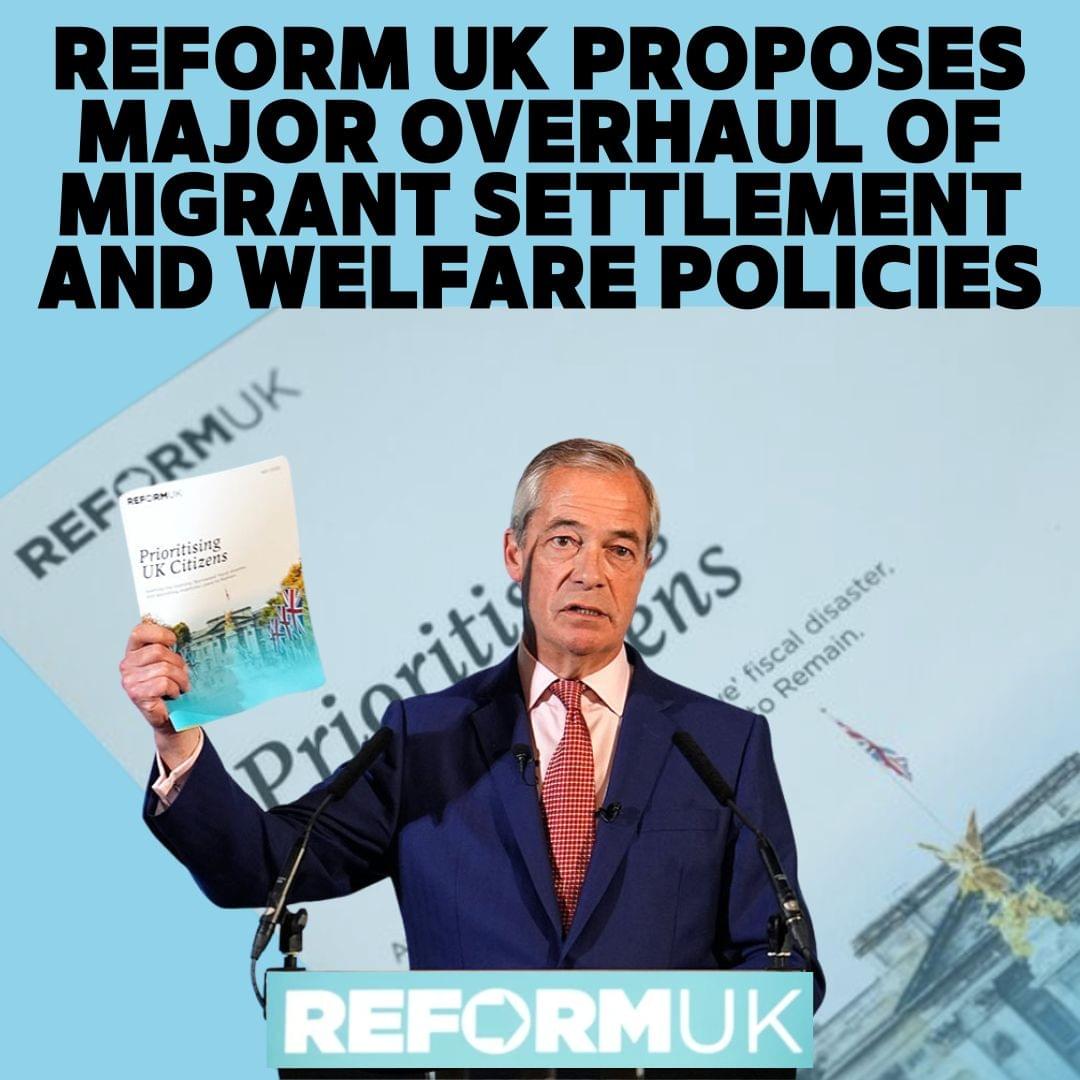Reform UK Proposes Major Overhaul of Migrant Settlement and Welfare Policies
Reform UK Proposes Major Overhaul of Migrant Settlement and Welfare Policies

Reform UK has unveiled a controversial plan to abolish the right of migrants to gain permanent settlement in the UK after five years, replacing the current Indefinite Leave to Remain (ILR) system with stricter visa requirements. The party, led by Nigel Farage, claims the policy would save £234 billion over several decades by limiting migrants’ access to welfare and enforcing tougher criteria for staying in the UK.
Under the proposed changes, migrants would need to reapply for visas every five years, meeting higher salary thresholds and stricter English language standards. The ILR, which allows migrants to live, work, and study in the UK permanently while accessing benefits, would be eliminated. Reform also plans to restrict welfare access to British citizens only, arguing that the UK should not serve as “the world’s food bank.”
Farage, speaking at a press conference, described the policy as a response to what he called the “Boriswave”—3.8 million migrants who entered the UK under looser post-Brexit rules introduced by Boris Johnson’s government. He highlighted that many of these migrants, who arrived since 2021, are nearing eligibility for ILR, with 213,666 ILR holders currently claiming Universal Credit, according to the Department for Work and Pensions. The Migration Observatory at the University of Oxford estimates that 430,000 non-EU citizens held ILR status by the end of 2024.
The policy would not affect EU nationals protected under the EU Withdrawal Agreement, who make up the majority of ILR benefit claimants. However, other EU nationals and non-EU migrants would face the new rules. Reform also proposes extending the wait for British citizenship from six to seven years and introducing “Acute Skills Shortage Visas” (ASSV), allowing firms to hire one overseas worker only if they train a UK worker for the same role. Additionally, the party aims to expand entrepreneur and investor migration routes to attract founders and those investing significant capital.
Critics have challenged the feasibility and fairness of Reform’s plans. Chancellor Rachel Reeves dismissed the £234 billion savings estimate, sourced from a Centre for Policy Studies report, as having “no basis in reality.” The report was later disavowed by its authors following scrutiny from the Office for Budget Responsibility. Reeves emphasized that the Labour government is already working to restrict migrants’ access to welfare and reduce illegal migration, including returning record numbers of ineligible migrants and cutting asylum seeker hotel costs.
Conservative shadow home secretary Chris Philp criticized the proposals as “half-baked and unworkable,” noting similarities to Conservative plans to bar migrants who claim benefits, access social housing, or have criminal records from permanent settlement. He accused Reform of lacking governing experience and promoting “reckless, left-wing economics.” The Liberal Democrats called the plans “not serious,” warning they would disrupt businesses and cost the UK billions in economic growth and tax revenue.
Reform’s policy chief, Zia Yusuf, defended the changes, arguing they would lead to “hundreds of thousands” losing settled status, particularly those reliant on welfare, who he claimed would leave voluntarily or face deportation. Farage acknowledged the policy could split families and uproot integrated migrants but insisted it was necessary to address the influx of “endless cheap foreign labour” that he says has disadvantaged British workers.
The government is currently consulting on doubling the ILR eligibility period from five to ten years. Reform’s retrospective application of the new rules to existing migrants is likely to spark legal challenges and significant uncertainty for families across the UK. No other major political party has proposed such extensive restrictions on legal migration, positioning Reform’s policy as a bold and divisive stance ahead of the next election.